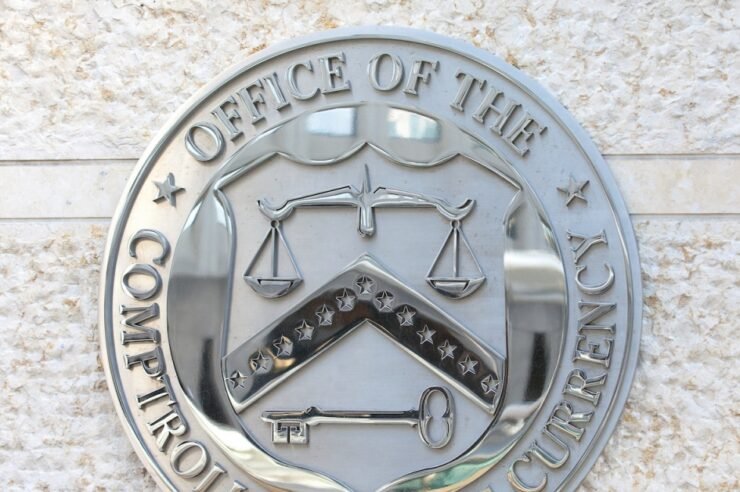
The chief economist of the Office of the Comptroller of the Currency (OCC), a banking regulator within the U.S. Treasury, believes issuing national bank charters to “fintech shadow banks” could bring “substantial advantages.”
In a paper titled “Chartering the FinTech Future,” Charles Calomiris set out how stablecoin providers chartered as banks that do not rely on funding from deposits would themselves gain advantages from regulatory oversight.
Such companies would benefit by “coming out of the shadows,” he wrote, with geographic reach and market credibility outweighing the added cost burden of regulation.
The banking system and its consumers would also benefit, according to Calomiris, evolving over the next decades with the added advantages of efficiency, convenience and stability from a regulated network of “stable value coin banks issuing non-depository liabilities.”
“It would be desirable to allow such banks to obtain national bank charters,” Calomiris concluded.
The term “shadow banking” appertains to financial middlemen who provide the creation of credit within the global financial system but are not subject to regulatory oversight. Stablecoin issuers are considered such entities in the paper.
“At the OCC, we know that new technologies and consumer preferences, not regulators, will decide the future of banking,” wrote Calomiris.
Future threats
Calomiris’ paper also examined the U.S. Federal Reserve’s grip on monetary power and its potential to oppose fintech banks.
“The Federal Reserve is a very powerful organization that stands to lose its monopoly over the payment system as blockchain-based networks develop,” wrote Calomiris. “One can hope that the Fed will be guided more by public interest than a desire to preserve its own power.”
Calomiris wrote that as far as he was aware, the Fed had not yet taken an official position on fintech chartering. “Time will tell,” he wrote.
But he suggested that politics as much as economics will decide whether consumers will ever benefit from a “chartered FinTech future.”
“When considering whether FinTech shadow banks, including stable coin providers, will eventually become an important part of the chartered banking system, it is crucial to take into account the political power of the special interests who stand to lose from doing so,” Calomiris said.
The OCC, under the leadership of former Coinbase executive Brian Brooks, has recently taken a notably crypto-friendly stance in its policies. In July, the Office issued a letter enabling nationally chartered banks in the U.S. provide custody services for cryptocurrencies.
Brooks was also reported to be pushing forward a plan to offer national banking charters to payment firms that don’t take deposits in September. Brooks said at the time, it could potentially consider companies like PayPal and Coinbase.
In recent months, a number of crypto and blockchain firms have applied to the OCC become federally regulated banks in the U.S., including BitPay, Anchorage and Paxos. Kraken and Avanti have already become the first crypto-native banks in the U.S., though they secured state charters from the Wyoming Division of Banking, not federally via the OCC.
In the paper, Calomiris said the OCC is also considering extending the national bank charter to include stablecoin providers. However, under the presidency of Joe Biden from next year, the OCC’s plans may see high-level pushback. In early December, Rep. Maxine Waters, chair of the House Financial Services Committee, wrote a letter calling on Biden to rescind or monitor all of the cryptocurrency-related guidance issued by the OCC.
Read the paper in full below:



Comments (No)